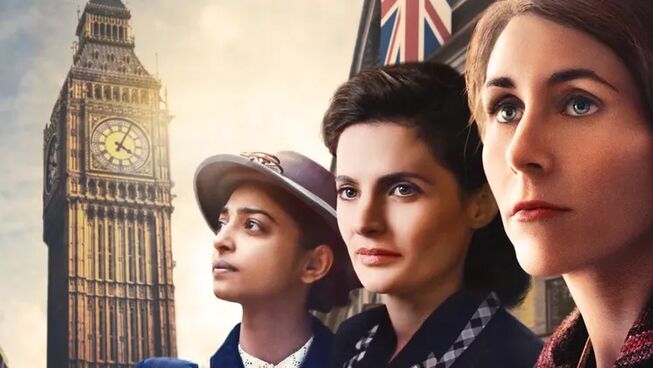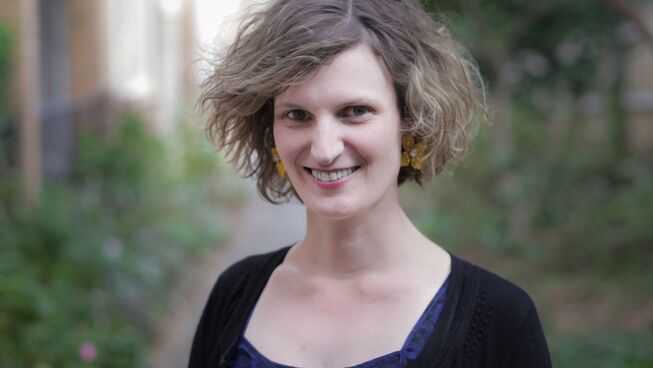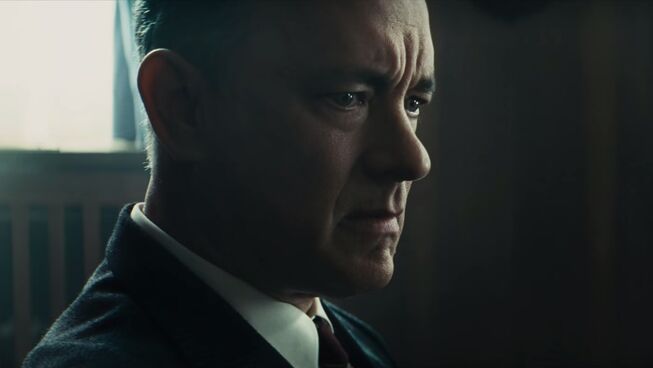
2 out of 5 stars
In the early days of WWII, Britain was becoming desperate for manpower. It thus tasks its Special Operations Executive (SOE) to recruit and train a whole cohort of new spies - women. Heading up the British contingent fighting Nazi Germany in France and strengthening the Resistance are two particularly unexpected candidates: Virginia Hall (Sarah Megan Thomas), an ambitious American with a wooden leg, and Noor Inayat Khan (Radhika Atpe), a Muslim pacifist.
A Call to Spy presents an interesting story, but does so in a way that feels stilted and heavy-handed. It's a fairly epic story - a grand narrative about everyday people fighting evil on the world stage. The challenge was to match the story's enormity with a script that could support this effort, but the direction and writing buckle under the weight of expectation. There were specific examples of the storyline that were entirely unconvincing. Which meant these distractions led to an implausible viewing experience.
Virginia is supposed to speak French convincingly enough to fool everyone around her and thus pass easily as a spy. Yet, her French was obviously tinged with an American accent. Only a few token words of the film were in French with dialogue always unnecessarily reverting to English at the most inexcusable times. Another illustration of overly rehearsed or under-practised scenes came during a tense moment where the SOE debates a life-or-death scenario's pros and cons. Along with others, these performances seem out of place. The audience could almost picture the director behind the camera coaching the cast along through the screenplay.
Neither the writer (Sarah Megan Thomas, who also - compellingly - plays Virginia Hall) nor director Lydia Dean Pilcher has many credits to their names. Even though their work is commendable, this story could have been excited better in the hands of a more experienced team. It feels like a film that is too vast for the parameters in which it was made. The epic nature of the story would have been a better film had it not sought to be so vast in scope. Had the production team settled for a smaller scale by focusing on fewer characters, fewer countries/languages, fewer parallel storylines, things may have been different.
For many people, the historical interest and fairly cohesive story will be enough to make this an enjoyable watch. Which does seem odd to say about a war film, but it is entertaining. Even though it does feel too long at a meagre two hours, many viewers may struggle to get into the story or the characters enough to believe their credibility. Despite the historical interest and importance for this reviewer, A Call to Spy did not deliver in the end.
REEL DIALOGUE: Who can you trust?
One element of every story of espionage is the question of trust. Who can you trust in the world? Especially in a world where everyone is lying to one another as a means of saving the world. Our deception method has changed over time, but the underlying considerations of trust go back to the beginning of time.
In this world that has become more and more interconnected, it has become less obvious who we can trust. Knowing who is the bearer of truth and justice. The government, schools and even churches have proven to be suspect when it comes to trust. Thankfully, there is one place that the truth can still be found. Not to sound cliched, but the Bible does provide answers to this question and more.
Put not your trust in princes, in a son of man, in whom there is no salvation. When his breath departs, he returns to the earth; on that very day his plans perish. Blessed is he whose help is the God of Jacob, whose hope is in the Lord his God - Psalm 146: 3-5
It is better to take refuge in the Lord than to trust in man. - Psalm 118: 8







